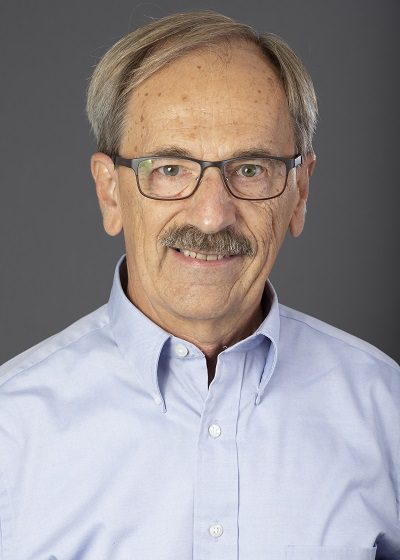From the Editor: The Future (of Engineering At Least) Seems To Be In Good Hands

If you’ve read this column before, you know I teach senior civil engineering college students in their Senior Project Design class. These students are only months away from graduation and the start of their careers, so while they’re relieved to be close to completing their studies, they also realize they’re about to start a whole new phase of life. We’ve talked about this in class, both seriously and in humorous ways.
Some Concerns Relatively Constant
One day my students were complaining about the class load on Tuesdays, which apparently is the largest of the week. Classes start at 9:40 a.m. and last until about 3:00 p.m. I stood there for a moment and just looked at them and chuckled as they realized the difference a few months is going to make.
At the beginning of a recent class, I asked them which issues they were concerned about. The first topic to come up was college debt; most students nodded in agreement.
Long ago, when I went to college, the financial burden seemed pretty large. My parents paid for some of it, I used my savings from summer jobs for some, and I had a student loan. The loan payments weren’t crippling, but it was more than just a nuisance. Since I was earning less than $10,000 per year, it meant we had to plan for any type of purchase beyond the daily expenses. That’s what we did, and everything turned out fine.
It seems to be a larger issue for them. One student said she didn’t know when she would be able to buy a house. Some wondered how many roommates they would need to afford a place to live. While the students all have secured jobs, or are going on to graduate school, they’re very concerned with their immediate financial state.
Shortly after this, someone mentioned the current inflation. After some discussion, we decided that although it’s an issue right now, inflation comes and goes, and their projected salaries should be adequate to get through these times. I reminded them that a good college education is one of the privileges they enjoy.
Additional Concerns Distinctly Modern
Climate change was another issue brought up. Students these days are very aware of their future and how global warming is going to affect their lives and work. I’m old enough that I likely won’t see the worst effects of global warming, but I’m aware of the changes we already see in weather, and I conduct my life to limit my impact. However, my students know it’s time to take action regarding the planet’s warming, because they will be forced to live their lives very differently than their parents—they’re the generation that will be taking responsibility for “fixing” what previous generations have given them. I’m confident they will be up to the task, however difficult it may seem.
Somewhat surprising to me was when they began talking about the issue of education, especially as related to non-professionals interfering with curriculum. They wondered how prepared for college students would be if they didn’t learn a comprehensive history of how we arrived where we are. When asked, I could only say that I needed help developing the curriculum for the class I’m teaching, so I went to fellow educators, not students’ parents.
Another major question was “How do you decide when to change jobs?” I gave them the basics, but also warned that sometimes the timing of changing jobs won’t be in their control. I described some of my personal experiences of companies merging and acquiring other companies. Perhaps one of your contacts may call you and offer you a new position. My advice was to be prepared for change and evaluate carefully.
For those who are current employers, know that our young engineers are concerned about not only their livelihood and personal careers, but of the world they will live in. They care about education, the environment and the economy. And they’re ready to act for the betterment of the greater community, especially if they were in my class.
About Robert Schickel
Robert Schickel was born in New Jersey and received his BS in Civil Engineering degree in 1971 from Valparaiso University in Indiana. His career started as a bridge design engineer and expanded to include design of various transportation facilities, including highways, bridges, rail lines and stations, and airport runways. Mr. Schickel managed engineering offices ranging from 20 to 140 people. He also served as a consultant to a large utility company. Mr. Schickel currently resides in Indiana and serves as Adjunct Professor for the College of Engineering at Valparaiso University. He enjoys his retired life at his lake house, playing golf, listening to music and spending time with his family, especially his grandchildren.


